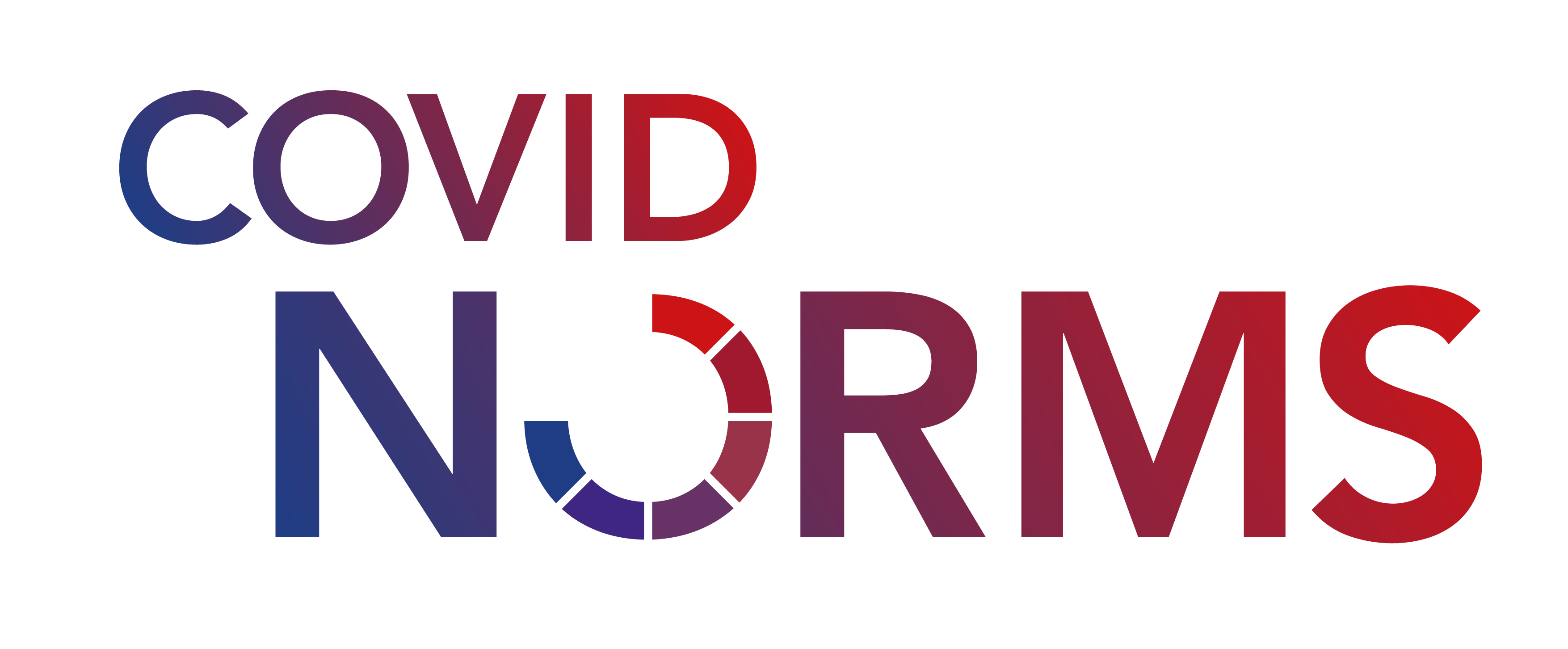Navigation auf uzh.ch
Navigation auf uzh.ch

As part of the National Research Program «Covid-19» (NRP 78), Thomas Friemel, Sarah Geber, Mark Eisenegger, and Daniel Vogler have received a grant for their project «Covid-Norms». The project will be realized in cooperation between the IKMZ and the fög. Over a period of two years (September 2020 - August 2022), social norms on various Covid-19 protection behaviors, especially the use of the SwissCovid app and the wearing of a face mask, will be investigated. The aim of the project is to understand the role of different forms of communication in the development of social norms on protective behavior. For this purpose, survey data of the Swiss population will be combined with content analysis data of the public discourse in the mass media and social media. The close cooperation with the Swiss Federal Office of Public Health will ensure that the scientific findings are incorporated into communication strategies and prevention measures.
Background: Reducing the reproduction factor by infection prevention is the only way to combat Covid-19 until a vaccination becomes available. This may be reached by high levels of (personal) hygiene and social distancing as well as the fast interruption of infection chains by testing and contact tracing (Salathé et al., 2020). However, epidemiological simulations demonstrate that these measures only become effective if a crucial share of the population complies with them (Ferretti et al., 2020; Fraser et al., 2004). Among other factors, this resulted in an enforced lockdown of public life all over the world. Given the economic and social downsides of this enforcement as well as the increasing opposition and protests, alternative approaches need to be developed. Particularly in democracies that build on individual freedom and self-reliant decisions of their citizens, the only legitimate (and thus feasible) strategy is to convince the population to comply voluntarily with infection prevention. Hence, the challenge for combating Covid-19 in the long run will be to establish social norms that socially regulate compliance with protective measures in Switzerland by indicating what is and what ought to be done.
Aims: Against this background, the present project aims to develop and support a normative approach to disease prevention. This requires 1) a profound theoretical and empirical understanding of the factors and dynamics of social norms of preventive behavior regarding Covid-19 and 2) the translation of these scientific insights into evidence-based, concrete guidance for monitoring and influencing norms of preventive behavior in the Swiss population.
Transfer and expected impact: The project builds on a close collaboration with the Swiss Federal Office of Public Health (FOPH). This collaboration is crucial regarding the project’s aim to rapidly translate the scientific insights into evidence-based, concrete guidance for disease prevention during the Covid-19 crises. Our results will inform ongoing communication strategies of the FOPH, such as the tracing app campaign, and will help to prepare a potential vaccination campaign.